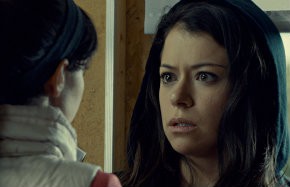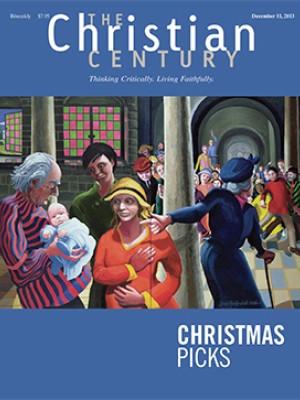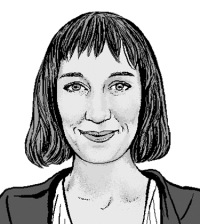She’s every woman

Some of the best acting on TV is on Orphan Black, a sci-fi thriller on BBC America that will enter its second season in the spring. The series follows streetwise con artist Sarah Manning (Tatiana Maslany) in a plot involving mistaken identity.
On her way home to Toronto after hiding out from a bad-news boyfriend, Sarah meets a distressed stranger on a train platform. The twist: the stranger looks exactly like her. After staring Sarah in the face, she walks in front of the approaching train and kills herself. In shock and confusion, Sarah steals the stranger’s purse and over the next few days, using the wallet and keys inside it, steals her life too.
Read our latest issue or browse back issues.
Sarah’s con game turns into a search for what links her to the look-alike stranger. The doppelgänger plot is blown open when Sarah meets three other identical look-alikes and learns that she is one of several clones, separated at birth and supposedly under the watchful eye of their mysterious creators.
Maslany is compelling as the angry, confused Sarah and mesmerizing as she channels each of the clone characters. Switching accents and hairstyles, she moves seamlessly between seven different personalities, at least five of which are full-blown characters with complex story lines and regular appearances.
This virtuosity almost feels like a gimmick at times—as when one clone interacts with another, and we remember that those two characters could never be in the same time or place at once. It can also present a house of mirrors—as when Maslany plays a clone pretending to be another clone. Overall, the effect is breathtaking.
On some level, each clone represents different incarnations of contemporary womanhood: the suburban soccer mom self-medicating on wine and pills; the lesbian evolutionary biologist grad student trying to find love in the midst of a demanding career; the religious fanatic manipulated by a powerful male figure; the angry, guarded orphan locked in a cycle of bad choices. Each character is more than the sum of her social role, but since they look identical, these social roles, and the personalities each fosters, become the central way to distinguish them.
As the clones get to know each other and learn more about their shared past, the question of their female identity, especially maternal identity, becomes central. Whether or not each woman can biologically reproduce offers one of the first clues into possible genetic variations among them.
It is at the intersection of genetic variation, personality and choice that the show presses into new territory. What does it mean to be free? Which will predominate in the long run, genetics or environment? What are the legal and moral limits to biological exploration? Who has the power to create, control and manipulate life? As the clones begin to figure out their place in a larger scientific experiment, they are sucked into a world of danger, intrigue and philosophical and scientific speculation, all while having to raise children, finish a dissertation or escape a destructive boyfriend.
The show is suspenseful and addictive. By the time you finish watching the first season, you may not even realize that it’s examining deep questions about the meaning of selfhood.







